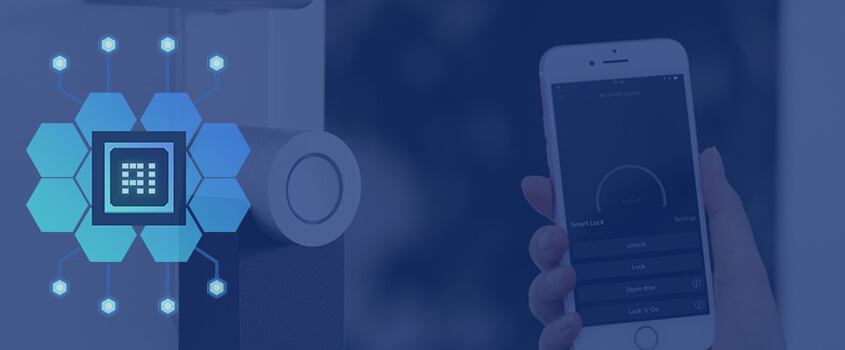Introduction:
As the year draws to an end and we dive into the new decade, cannot wait to see what organizations can expect in the upcoming year. Last year, 2019 was considered as the year of truth, with many enterprises developing blockchain proof of concepts, Google confirming a quantum supremacy breakthrough and more data breaches with the latest breach containing 1.2 billion records.
We are in the midst of the fourth Industrial Revolution, and innovation is advancing at a rapid pace. Organizations, as well as the public, is not aware of a portion of the significant technology trend patterns being abandoned. Understanding the key patterns will allow individuals and organizations to be ready to handle the upcoming challenges.
A look at 7 technology trends for 2020, the upcoming year would be exciting as ever when it comes to technology.
1. Artificial Intelligence – Increase productivity

(AI) is one of the most transformative tech developments of today. Most organizations have begun to investigate how they can utilize AI to improve the client experience and to streamline their business tasks. This will continue in 2020 and keeping in mind that individuals will progressively get used to using AIs, planning and sending our own AI-based frameworks will remain costly affair for most organizations.
Hence, a significant part of the AI applications will be operated by suppliers -an administration stage, which enable us to add in our own information and pay for the calculations or register assets as we use them. As of now, the platforms provided by Amazon, Google, and Microsoft generally boast of a fairly wide scope, with (regularly costly) custom-designing required to incorporate in particular activities that an association may require.
During 2020, we will see more extensive reception and a large number of suppliers that are probably going to begin offering progressively customized applications and administrations for specific assignments. This will ensure that no organization shall have reasons left to not use AI.
2. 5G data Networks – Coming soon
5G technology shall finally be in the market soon. In 2019, we saw the first 5G systems getting operational. Motorola was the first to dispatch a 5G telephone, and a lot more organizations will follow in 2020, however Apple may hold up till 2021. 5G offers considerable advantages over the current 4G, however most buyers gushing media on their telephones won’t see a large number of these advantages, aside from quicker download speeds. Not just in light of the fact that it will presumably take another 2-3 years before we will have wide 5G inclusion in numerous nations, but since most current applications are undertaking applications.
The advantages of 5G are notable when compared to 4G: it offers a lot higher information speeds (1-20 Gbit/s), much lower idleness (1 ms), expanded limit as the system develops and it utilizes extremely high frequencies (3.5 GHz).
2020 is probably going to be the year when 5G is actually available for all, with increasing information designs everyone can enjoy all the advantages of the new technology. Eventually, portable systems will turn out to be more usable compared to the wired systems that is working in our homes and organizations.
3. Personalized treatment and predictive medication
Technology is presently changing human services at an exceptional rate. Our capacity to save information from wearable gadgets will enable us to progressively anticipate and treat medical problems in individuals even before they experience any side effects.
With regards to treatment, we will see considerably more customized methodologies. This includes figuring out the exact drug which enables specialists to all the more unequivocally recommend prescriptions and hand out medications, on account of an information driven comprehension of how viable they are probably going to be for a particular patient. In the fields of genomics and AI, a noteworthy comprehension of how various individuals’ bodies react differently to the same ailment and what are the suitable medicines to cure them.
All through 2020 we will see new uses of predictive healthcare and the initiation of progressively customized and compelling medicines to guarantee better results for each and every patient.
4. Fixing online trust
It doesn’t appear that in 2020 we can bring back online trust. AI seem to have an expertise in creating and spreading fake news, creating chaos. In the previous years, we have seen numerous instances where AI has been used by renowned organizations to cause harm purposely by misusing and leaking personal information. These models incorporate deep fakes to generate false news and deceptions or privacy-invading facial recognition cameras. Twitter agreed to boycott political advertisements but Facebook refused to do so and won’t even discontinue false promotions, demonstrates that the solution for this trust issue won’t originate from the existing parties.
A solution can come from new companies that do consider online trust genuinely or form forced regulations for large companies to follow. In 2020, such guidelines will gradually drive, uprightness and responsibility. All things considered, it won’t start from the huge tech organizations like Google and Facebook, regardless of them signing a superior web experience declaration.
These organizations will possibly change if guidelines compel them, however since their campaigning power is too huge, guidelines won’t be enough to guarantee change. It is an endless loop which just a solid government can break. Billion-dollar fines by the EU are a positive development, however these organizations get a lot of money flow with publicizing that they don’t generally think about it.
In the event that we need to battle AI-drive disinformation on the web, we need another web, where trust is guaranteed, self-sovereign identities are the norm and consumers control their own data. In spite of the fact that the decentralized ecosystem is not designed completely, in 2020, we will gradually observe steps taken towards fixing this web issue.
5. Computer Vision
Computer vision includes frameworks that can distinguish things, places, items or individuals from visual pictures – those gathered by a camera or a sensor. It’s this innovation that allows your cell phone camera to detect the picture identifying a face etc and powers innovation, for example, Google Image Search.
In 2020, we’re going to see computer vision prepared devices and innovation consistently contributing to expanding number of employments. It’s essential as self-governing autos will “see” and explore their way around without any risk. Computer vision cameras will be used to look for defective items or improper gear and surveillance cameras will have the option to alarm us regarding anything strange, without constant monitoring. Computer vision is additionally empowering face acknowledgment, which we will hear a great deal about in 2020.
6. Extended Reality
Extended Reality (XR) is a term that covers a few new and developing advancements used to create vivid computerized encounters. Virtual reality (VR) provides a fully immersive digital experience where you enter a PC created world with headsets that cut you off from present reality. Augmented reality (AR) incorporates digital objects into present reality by means of cell phone screens or displays. Mixed reality (MR) is an expansion of AR, that implies clients can interact with advanced objects and induce these in reality.
In 2020, one can anticipate this to change, as organizations get to grasp the abundance of conceivable outcomes offered by both current types of XR. Virtual and expanded reality will turn out to be progressively common for preparing and reproduction, just as offering better approaches to associate with clients.
7. Blockchain Technology

Blockchain is an innovation pattern that was widely used this year, but on the off chance that you notice it in non-well informed organization you experience backlash. In the previous decade, there was a major uproar regarding who could build the best blockchain that would be utilized by various decentralized applications and undertakings. An assortment of networks, establishments and ventures are taking a shot at designing a particular blockchain to administer everything.
Blockchain cannot provide for all the requirements of an application. A few applications support private transactions while others require high-throughput and low expenses. Depending on the application you wish to create, you would decide on a particular pattern and whatever limitations would show up would require further changes. 2020 could at last be the year when that changes. Blockchain is basically an advanced record used to record exchanges however verified because of its encoded and decentralized nature.
Keeping all the above mentioned trend in mind, there is a lot to look forward from the upcoming decade. The issues will be solved and new technology will lead to improved way of life.
Conclusion
AI will become more advanced in 2020. New training and learning methods will result in more advanced AI systems. Some of these AI systems will undoubtedly cause harm and, therefore, media attention for AI ethics will grow. 5G will gradually be available to the public, meanwhile enterprises may build their own private 5G networks as well.
Healthcare would also see improvement and it will turn out to be a useful technological advancement in the future. Gradually, steps to protect personal information shared by the clients should be a primary concern to gain back online trust and computer vision will improve security, identification and detection in various field.

